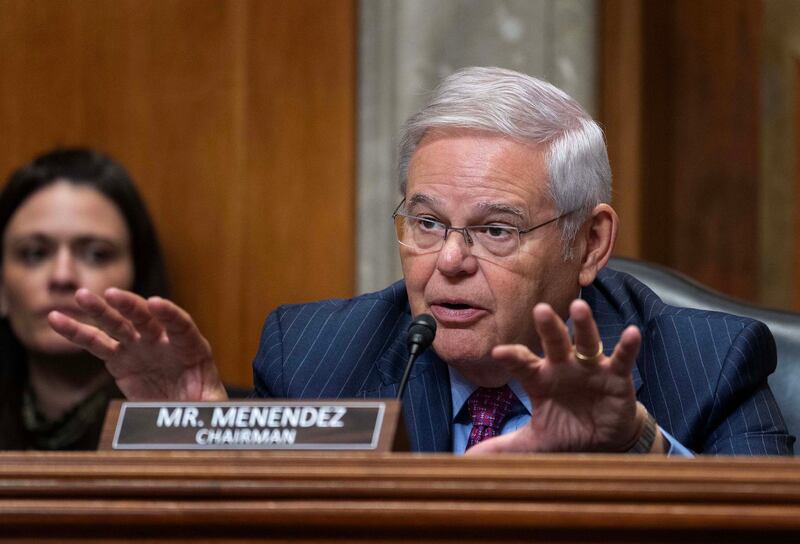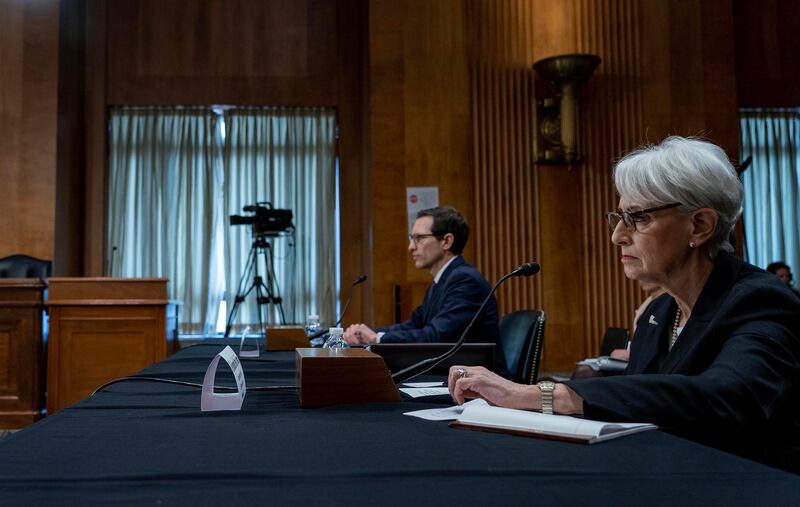China’s government has “penetrated” the United Nations, undercutting its oversight functions by stacking bodies like the U.N. Human Rights Council with its own people, U.S. Deputy Secretary of State Wendy Sherman told a Senate hearing on Thursday.
Asked by Senate Foreign Relations Committee Chairman Bob Menendez about State Department efforts to push back against China’s “systematic effort to subvert the ability of the United Nations human rights system,” Sherman said that it was important for the United States to maintain representation at the organization.
“You’re quite right, the Chinese operate in the U.N. system very effectively,” Sherman told Menendez, a Democratic senator from New Jersey. “They have put people in junior positions, which you simply can sign up for financially and put people into slots, and then those people move up the chain in the U.N. system.”
Sherman said the State Department had “a lot of work to do” to counteract Beijing’s growing influence at the United Nations.
“Our U.N. ambassador, Linda Thomas-Greenfield, is very engaged in looking at all the ways that Chinese have penetrated the U.N. system and figuring out with our [State Department] International Organization Bureau ways to challenge all of that,” she said.

The Trump administration withdrew the United States from the U.N. Human Rights Council in 2018. Russia and China, which was then also on the council, subsequently moved to cut funding for U.N. human rights work. The Biden administration rejoined last year.
Menendez, for his part, mused to Sherman that the U.S. government could adopt the same strategy of stacking U.N. agency staffing lists with its own people to counteract China’s putative efforts.
“Not to want to copy too many things from Chinese, but we could definitely take a lesson from their paper,” he said, noting Beijing had “methodically implemented their people in a way that ultimately leads them to have influence on a wide variety [of bodies] across the U.N. – and that's not the only place, [also the] World Health Organization”
‘Every nook and cranny’
Sen. Jim Risch of Idaho, the ranking Republican member of the Senate Foreign Relations Committee, echoed the comments.
“They've got a particular target for the U.N.: to get involved there in every nook and cranny that they can,” Risch said, before adding he was concerned that the Chinese government was “doing a similar thing here in the United States, at the colleges and universities.”
He noted many Confucius Institutes, which have been labeled " foreign missions" by the U.S. government, have been shut down, but that "the Chinese now, instead of going to the Confucius Institute, are buying chairs in the various departments or they're funding research."
“I was staggered by the amount of money that China is putting into these universities,” he said. “When this happens, there is no doubt that those colleges and universities are going to get soft on China.”

Sherman responded that daylight was the best disinfectant.
“As you point out, after peaking at 100 Confucius centers in 2018, there are now only about 15,” Sherman said. “So putting a spotlight on these issues is very critical to putting pressure on universities to understand what's happening and what they're doing.”
The hearing closed with Sen. Mitt Romney, a Republican from Utah and former presidential candidate, calling for the State Department to develop a classified “comprehensive strategy” for countering Beijing.
The strategy would guide all U.S. government decisions about, among other things, “our research and development investments,” “access to our universities,” “military procurement,” “visas we provide to the Chinese” and “social media strategies,” Romney said.
Sherman said the work was time-consuming but officials were “working on every one of those tactical areas you identified.”
